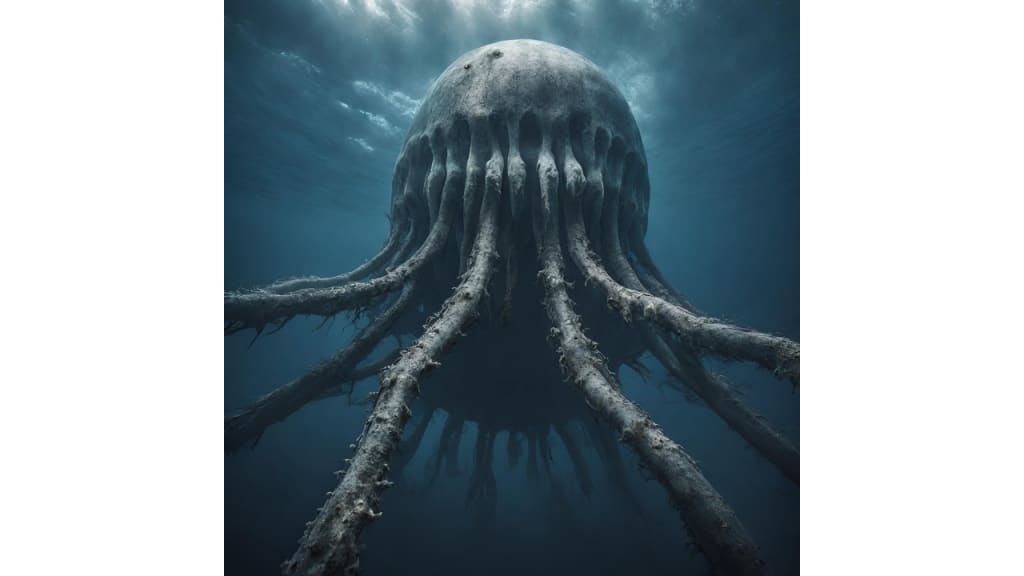The Real Reason Why We Don't Explore the Oceans
Exploring the Mystery of Earth's Oceans and Overcoming Our Deep-Rooted Fears

The oceans cover 71% of Earth's surface, playing a crucial role in our ecosystem. They are teeming with biodiversity, provide vast quantities of food, and are responsible for generating a significant portion of the planet's oxygen through plankton. Despite their immense importance, we still know very little about the oceans, with only 5% of the ocean floor having been mapped in detail. In this article, we will delve into the reasons behind our limited exploration of the oceans and how deep-seated fears and historical events have contributed to this mystery.
The Significance of the Oceans:
Oceans are essential for human activities such as travel, fishing, and the transportation of freight. They are a lifeline for more than one million people working on merchant ships and 38 million fishermen worldwide. Historically, countries with powerful navies have wielded significant influence. The sea's importance is undeniable, yet it remains largely unexplored when compared to outer space.
Technological Capabilities:
Humanity has developed technology to explore the oceans for centuries. Submersible objects and submarines have allowed us to venture deeper underwater. In the 1960s, Jacques Cousteau demonstrated that humans could live underwater with his Conshelf II project. So, why haven't we explored the oceans more extensively?
The Fear of the Unknown:
Thalassophobia, the fear of deep water, is a significant factor preventing ocean exploration. While this fear may be rational due to the potential dangers of deep water, it has evolved into a phobia that affects daily life. The vast darkness and scale of the ocean represent the ultimate unknown, reflecting the depths of the human subconscious. The fear of the sea permeates human culture, from myths like Atlantis to modern legends like the Bermuda Triangle.
Historical Events and Maritime Disasters:
The sinking of the Titanic in 1912, with around 1,500 lives lost, remains one of the most traumatic maritime disasters in history. Despite knowing the Titanic's location, it took until the 1980s to locate the wreck. This illustrates the ocean's power and its ability to keep its secrets hidden. Mysterious disappearances in the Bermuda Triangle and historical events like the disappearance of Civil War submarines add to the fear of the sea.
Financial Barriers:
Exploring the oceans is expensive, and limited funding for nautical research hampers progress. While government organizations and universities conduct research, it pales in comparison to the investment in space exploration. However, oceanic research and space exploration can complement each other, as technologies developed for one field can benefit the other.
Challenges of Ocean Exploration:
The deep sea presents formidable challenges, including crushing pressure, freezing temperatures, and pitch-black depths. Even with technologies like submarines and underwater robots, exploration remains costly. Unlike space, there are no easily exploitable resources in the ocean, except for oil, which raises environmental concerns.
Conclusion:
Exploring the oceans is a daunting but necessary endeavor. Overcoming our evolutionary fear of the deep and securing adequate funding for oceanic research will be crucial. Ultimately, ocean exploration holds the potential to advance our understanding of Earth's ecosystem and contribute to our broader exploration of space, making it a worthwhile endeavor for humanity's future.
What do you think? Is there anything we missed? Let us know in the comments, check out these other clips from Unveiled, and make sure you subscribe and ring the bell for our latest content.
About the Creator
Qandil fatima
Curious explorer of Earth's mysteries and space's enigmas. Join me on a cosmic odyssey through captivating stories. 🌌🚀👽






Comments
There are no comments for this story
Be the first to respond and start the conversation.